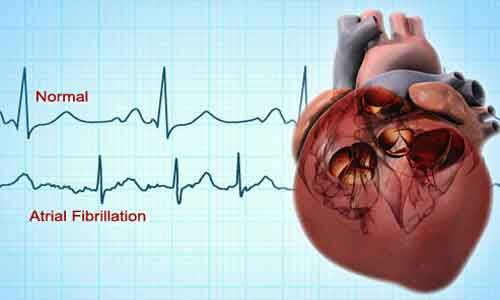- Home
- Medical news & Guidelines
- Anesthesiology
- Cardiology and CTVS
- Critical Care
- Dentistry
- Dermatology
- Diabetes and Endocrinology
- ENT
- Gastroenterology
- Medicine
- Nephrology
- Neurology
- Obstretics-Gynaecology
- Oncology
- Ophthalmology
- Orthopaedics
- Pediatrics-Neonatology
- Psychiatry
- Pulmonology
- Radiology
- Surgery
- Urology
- Laboratory Medicine
- Diet
- Nursing
- Paramedical
- Physiotherapy
- Health news
- Fact Check
- Bone Health Fact Check
- Brain Health Fact Check
- Cancer Related Fact Check
- Child Care Fact Check
- Dental and oral health fact check
- Diabetes and metabolic health fact check
- Diet and Nutrition Fact Check
- Eye and ENT Care Fact Check
- Fitness fact check
- Gut health fact check
- Heart health fact check
- Kidney health fact check
- Medical education fact check
- Men's health fact check
- Respiratory fact check
- Skin and hair care fact check
- Vaccine and Immunization fact check
- Women's health fact check
- AYUSH
- State News
- Andaman and Nicobar Islands
- Andhra Pradesh
- Arunachal Pradesh
- Assam
- Bihar
- Chandigarh
- Chattisgarh
- Dadra and Nagar Haveli
- Daman and Diu
- Delhi
- Goa
- Gujarat
- Haryana
- Himachal Pradesh
- Jammu & Kashmir
- Jharkhand
- Karnataka
- Kerala
- Ladakh
- Lakshadweep
- Madhya Pradesh
- Maharashtra
- Manipur
- Meghalaya
- Mizoram
- Nagaland
- Odisha
- Puducherry
- Punjab
- Rajasthan
- Sikkim
- Tamil Nadu
- Telangana
- Tripura
- Uttar Pradesh
- Uttrakhand
- West Bengal
- Medical Education
- Industry
Vitamin D, Omega-3 don't lower atrial fibrillation risk: Study

LOS ANGELES - New research presented today at the American Heart Association Scientific Sessions suggests neither vitamin D nor the omega-3 fatty acids found in fish oil prevent the development of atrial fibrillation, a potentially serious heart rhythm disturbance.
"Our trial results do not support taking fish oil or vitamin D supplements to prevent atrial fibrillation," said Christine M. Albert, MD, MPH, the study's lead author and chair of the Department of Cardiology in the Smidt Heart Institute, who presented the research at the late-breaking science session. "However, these supplements also did not elevate the risk of atrial fibrillation, which is good news for individuals taking them for other health conditions."
Past data from observational studies have been conflicting, leaving both patients and clinicians uncertain on recommendations regarding prevention of atrial fibrillation with these supplements.
"This is the first large-scale trial that led us to a definitive result," said Albert.
Results are based on a randomized clinical trial involving more than 25,000 men and women from all over the United States without a history of atrial fibrillation. During a more than five-year period, 900, or 3.6%, of participants were diagnosed with atrial fibrillation.
There were no statistically significant differences between the participants who were assigned to take vitamin D or fish oil supplements and the participants who were assigned to take a placebo.
Atrial fibrillation, or AF, is the most common type of abnormal heart rhythm, causing the heart to contract irregularly and, sometimes, too quickly. It is estimated to affect 33 million people worldwide.
The condition can lead to clotting inside the atrium chamber of the heart and clots can then travel from the heart to the brain, causing a stroke. Atrial fibrillation can also lead to weakening of the bottom chamber of the heart, resulting in fluid buildup or heart failure. Importantly, it often results in significant symptoms that can adversely affect one's quality of life.
While this research is important in educating patients about effective preventive measures, Albert emphasizes the need for more research directed at avoiding the condition.
"Although these two supplements do not prevent atrial fibrillation, recent studies have suggested that lifestyle modifications such as maintaining a healthy weight, controlling blood pressure, and moderating alcohol intake may lower risk of atrial fibrillation," said Albert. "We need to continue to educate the public on ways to lower their risk as well as search for new ways to prevent this condition."
Hina Zahid Joined Medical Dialogue in 2017 with a passion to work as a Reporter. She coordinates with various national and international journals and association and covers all the stories related to Medical guidelines, Medical Journals, rare medical surgeries as well as all the updates in the medical field. Email: editorial@medicaldialogues.in. Contact no. 011-43720751
Dr Kamal Kant Kohli-MBBS, DTCD- a chest specialist with more than 30 years of practice and a flair for writing clinical articles, Dr Kamal Kant Kohli joined Medical Dialogues as a Chief Editor of Medical News. Besides writing articles, as an editor, he proofreads and verifies all the medical content published on Medical Dialogues including those coming from journals, studies,medical conferences,guidelines etc. Email: drkohli@medicaldialogues.in. Contact no. 011-43720751


